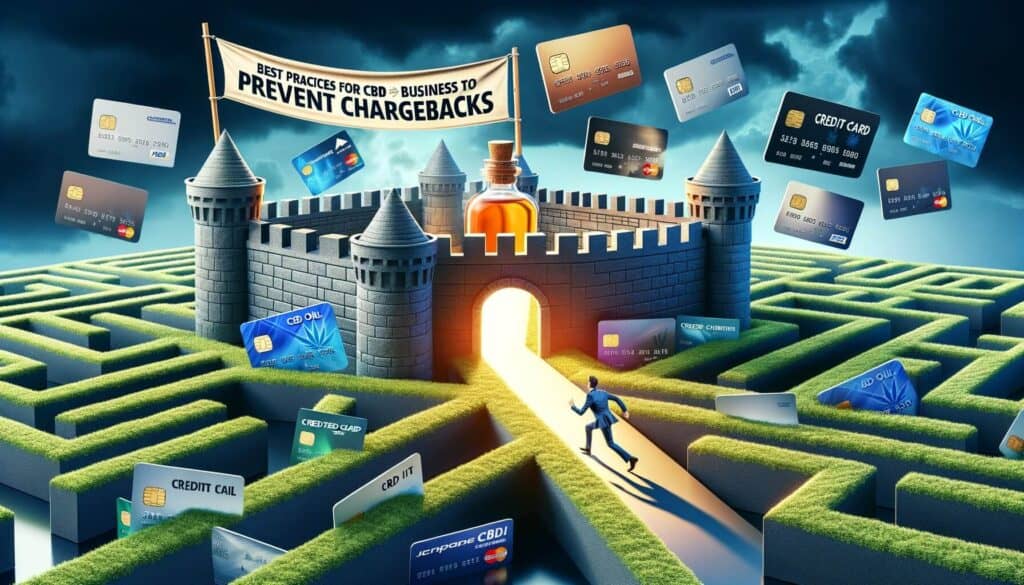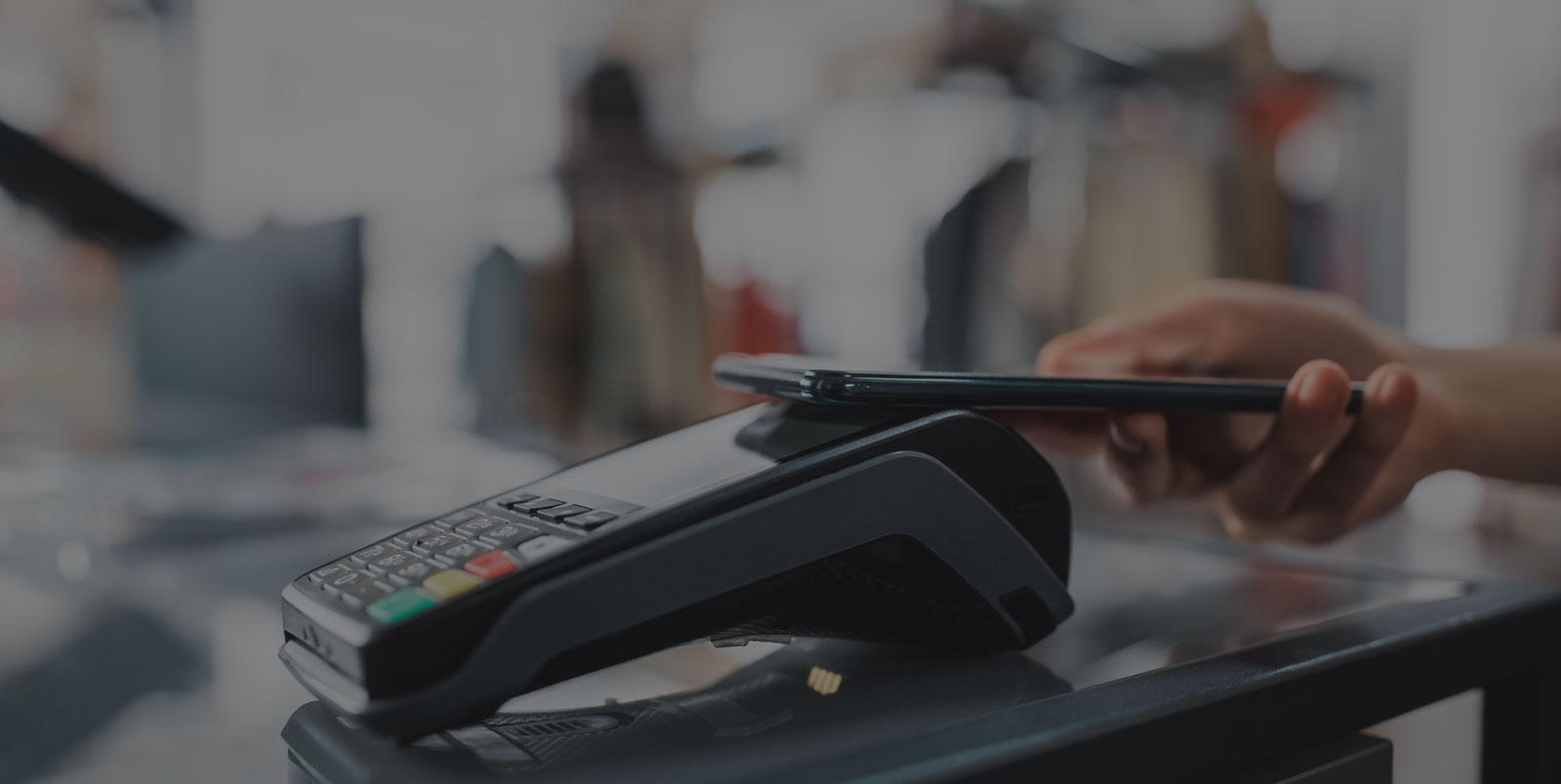
By Mia Leach January 14, 2025
Chargebacks are a common occurrence in the CBD industry, posing significant challenges for businesses operating in this sector. A chargeback is a transaction reversal initiated by the cardholder’s bank, typically in response to a customer dispute or fraudulent activity. When a chargeback is filed, the funds from the original transaction are returned to the customer, and the merchant is left to bear the financial burden.
Understanding the Reasons for Chargebacks in the CBD Industry

Chargebacks in the CBD industry can stem from various reasons, including customer dissatisfaction, product quality issues, delivery problems, and fraudulent activity. It is crucial for CBD businesses to understand these reasons to effectively prevent and manage chargebacks.
One of the primary reasons for chargebacks in the CBD industry is customer dissatisfaction. CBD products are often purchased for their potential health benefits, and customers have high expectations regarding their effectiveness. If a customer feels that the product did not meet their expectations or did not provide the desired results, they may file a chargeback.
Another common reason for chargebacks in the CBD industry is product quality issues. CBD products must meet certain standards to ensure their safety and efficacy. If a customer receives a product that is expired, contaminated, or does not match the description provided by the merchant, they may initiate a chargeback.
Delivery problems can also lead to chargebacks in the CBD industry. Customers expect timely and reliable delivery of their CBD products. If a shipment is delayed, lost, or damaged during transit, customers may file a chargeback to recover their funds.
Fraudulent activity is a significant concern in the CBD industry, leading to chargebacks. Fraudsters may use stolen credit card information to make unauthorized purchases of CBD products. When the legitimate cardholder discovers the fraudulent transaction, they will likely file a chargeback, leaving the merchant to deal with the financial consequences.
Preventing Chargebacks: Best Practices for CBD Businesses

CBD businesses can take proactive measures to prevent chargebacks and minimize their impact on their operations. Implementing the following best practices can significantly reduce the occurrence of chargebacks:
1. Clear and Accurate Product Descriptions: Provide detailed and accurate descriptions of your CBD products, including ingredients, dosage instructions, and potential benefits. This will help manage customer expectations and reduce the likelihood of chargebacks due to product dissatisfaction.
2. Transparent Return and Refund Policies: Clearly communicate your return and refund policies to customers. Make sure they are easily accessible on your website and include information on how to initiate a return or request a refund. By providing a straightforward and customer-friendly process, you can minimize the number of chargebacks resulting from dissatisfaction.
3. Reliable Shipping and Delivery: Partner with reputable shipping carriers to ensure reliable and timely delivery of your CBD products. Provide customers with tracking information and updates on their shipments to minimize the risk of chargebacks due to delivery problems.
4. Robust Customer Support: Establish a dedicated customer support team that can promptly address customer inquiries, concerns, and disputes. By providing excellent customer service, you can resolve issues before they escalate to chargebacks.
5. Secure Payment Processing: Implement robust security measures to protect customer payment information and prevent fraudulent transactions. Utilize secure payment gateways and encryption technologies to safeguard sensitive data.
Effective Communication: Dealing with Customer Disputes and Inquiries

Effective communication is crucial when dealing with customer disputes and inquiries to prevent chargebacks. CBD businesses should prioritize prompt and clear communication to address customer concerns and resolve issues. Here are some strategies for effective communication:
1. Timely Response: Respond to customer inquiries and disputes as quickly as possible. Delayed responses can escalate customer frustration and increase the likelihood of chargebacks.
2. Active Listening: Listen attentively to customer concerns and empathize with their frustrations. Show genuine interest in resolving their issues and provide personalized solutions whenever possible.
3. Clear and Concise Communication: Use clear and concise language when communicating with customers. Avoid technical jargon and provide step-by-step instructions to help customers understand the resolution process.
4. Professional Tone: Maintain a professional and courteous tone in all customer interactions. Avoid becoming defensive or confrontational, as this can escalate the situation and lead to chargebacks.
5. Follow-Up: After resolving a customer dispute or inquiry, follow up to ensure their satisfaction. This proactive approach can help build trust and loyalty, reducing the likelihood of chargebacks in the future.
Documenting Transactions: Essential Steps for Chargeback Protection

Properly documenting transactions is essential for chargeback protection in the CBD industry. By maintaining comprehensive records, CBD businesses can effectively dispute chargebacks and provide evidence of valid transactions. Here are some essential steps for documenting transactions:
1. Order Confirmation Emails: Send order confirmation emails to customers immediately after they make a purchase. These emails should include details such as the order number, product description, quantity, price, and shipping information.
2. Shipping Confirmation Emails: Once the CBD products are shipped, send customers a shipping confirmation email with tracking information. This email serves as proof that the products were dispatched and can be used to dispute chargebacks related to delivery problems.
3. Delivery Confirmation: Require a signature upon delivery or utilize delivery confirmation services to obtain proof of receipt. This documentation can be crucial in disputing chargebacks claiming non-delivery.
4. Customer Communication Logs: Maintain a record of all customer communications, including emails, phone calls, and live chat transcripts. These logs can serve as evidence of effective communication and dispute resolution efforts.
5. Product Documentation: Keep detailed records of product descriptions, labels, batch numbers, and certificates of analysis (COAs). These documents can be used to verify the quality and authenticity of the CBD products in case of chargebacks related to product quality issues.
Chargeback Representment: How to Fight Unfair Claims
Chargeback representment is the process of disputing unfair chargebacks and providing evidence to support the merchant’s case. When faced with a chargeback, CBD businesses can follow these steps to fight unfair claims:
1. Gather Evidence: Collect all relevant documentation, including order confirmation emails, shipping confirmation emails, delivery confirmation, and customer communication logs. This evidence will be crucial in proving the validity of the transaction.
2. Review Chargeback Reason Codes: Understand the reason code provided by the cardholder’s bank for the chargeback. This code indicates the specific reason for the chargeback and helps determine the appropriate evidence to present.
3. Prepare a Compelling Case: Craft a detailed and persuasive response to the chargeback, addressing each point raised by the customer. Clearly explain why the chargeback is unjustified and provide supporting evidence to refute the customer’s claims.
4. Submit the Representment: Submit the chargeback representment to the appropriate payment processor or acquiring bank within the specified timeframe. Ensure that all required documentation is included and follow any specific guidelines provided by the processor or bank.
5. Monitor the Outcome: Keep track of the representment process and follow up with the payment processor or acquiring bank for updates. If the representment is successful, the funds will be returned to the merchant’s account. If not, consider alternative dispute resolution methods or seek legal advice if necessary.
Chargeback Alerts and Monitoring: Tools to Stay Ahead
Chargeback alerts and monitoring tools can help CBD businesses stay ahead of potential chargebacks and take proactive measures to prevent them. These tools provide real-time notifications and insights into transaction disputes, allowing merchants to address issues promptly. Here are some popular chargeback alerts and monitoring tools:
1. Chargeback Alerts: Chargeback alert services notify merchants when a chargeback is filed against their business. These alerts provide valuable information, such as the reason for the chargeback, the customer’s contact details, and the transaction details. By receiving timely notifications, CBD businesses can quickly respond to chargebacks and initiate the representment process.
2. Fraud Detection Systems: Implementing fraud detection systems can help identify and prevent fraudulent transactions before they result in chargebacks. These systems use advanced algorithms and machine learning to analyze transaction patterns and detect suspicious activity. By flagging potentially fraudulent transactions, CBD businesses can take immediate action to prevent chargebacks.
3. Transaction Monitoring Platforms: Transaction monitoring platforms provide comprehensive insights into transaction data, allowing CBD businesses to identify potential chargeback trends and patterns. By analyzing this data, merchants can proactively address issues and implement preventive measures to reduce chargebacks.
4. Chargeback Analytics: Chargeback analytics tools provide in-depth analysis of chargeback data, helping CBD businesses identify the root causes of chargebacks and develop targeted strategies for prevention. These tools can highlight areas of improvement, such as product quality, customer service, or shipping processes, enabling merchants to make informed decisions to minimize chargebacks.
Chargeback Management: Strategies for CBD Merchants
Effective chargeback management is crucial for CBD merchants to minimize financial losses and maintain a healthy business. Implementing the following strategies can help CBD businesses effectively manage chargebacks:
1. Monitor Chargeback Ratios: Keep track of your chargeback ratios to identify any sudden increases or patterns. High chargeback ratios can indicate underlying issues that need to be addressed promptly.
2. Analyze Chargeback Reasons: Analyze the reasons provided for chargebacks to identify recurring issues. By understanding the root causes, CBD businesses can implement targeted solutions to prevent future chargebacks.
3. Implement Fraud Prevention Measures: Utilize fraud prevention tools and technologies to detect and prevent fraudulent transactions. By implementing robust security measures, CBD businesses can significantly reduce the risk of chargebacks resulting from fraudulent activity.
4. Continuously Improve Customer Service: Invest in training your customer support team to provide exceptional service. By addressing customer concerns promptly and effectively, CBD businesses can minimize the likelihood of chargebacks resulting from dissatisfaction.
5. Regularly Review Policies and Procedures: Regularly review and update your return, refund, and shipping policies to ensure they align with industry best practices and customer expectations. Clear and customer-friendly policies can help prevent chargebacks and improve customer satisfaction.
Chargeback Fraud: Identifying and Preventing Scams
Chargeback fraud, also known as friendly fraud, is a significant concern for CBD businesses. Friendly fraud occurs when a customer intentionally files a chargeback to obtain a refund while retaining the purchased product. CBD businesses can take the following steps to identify and prevent chargeback fraud:
1. Educate Employees: Train your employees to recognize the signs of chargeback fraud. Provide them with guidelines on how to handle suspicious transactions and escalate potential fraud cases.
2. Verify Customer Information: Implement strict customer verification processes to ensure the legitimacy of transactions. Request additional information, such as identification documents or proof of address, for high-value orders or suspicious transactions.
3. Monitor Transaction Patterns: Regularly review transaction data to identify any unusual patterns or discrepancies. Look for multiple chargebacks from the same customer, frequent changes in shipping addresses, or unusually high-value orders.
4. Utilize Fraud Detection Tools: Implement fraud detection tools that can analyze transaction data and identify potential fraud indicators. These tools can flag suspicious transactions for further investigation, helping CBD businesses prevent chargeback fraud.
5. Dispute Unfair Chargebacks: Actively dispute chargebacks that are suspected to be fraudulent. Provide evidence of the transaction, including order confirmation emails, shipping confirmation emails, and delivery confirmation, to support your case.
FAQs
Q.1: What is a chargeback?
A chargeback is a transaction reversal initiated by the cardholder’s bank in response to a customer dispute or fraudulent activity. The funds from the original sale are returned to the customer, and the merchant is responsible for covering the cost of the chargeback.
Q.2: Why are chargebacks common in the CBD industry?
Chargebacks are common in the CBD industry due to factors such as product quality issues, delivery problems, unauthorized transactions, and legal and regulatory concerns. The unique challenges and high-risk nature of the industry contribute to the likelihood of chargebacks.
Q.3: How can CBD businesses prevent chargebacks?
CBD businesses can prevent chargebacks by implementing best practices such as clear product descriptions and disclaimers, transparent pricing and billing descriptors, secure payment processing, responsive customer support, accurate order fulfillment and tracking, clear refund and return policies, and fraud prevention measures.
Q.4: How should CBD businesses handle customer disputes and inquiries?
CBD businesses should handle customer disputes and inquiries by responding promptly, showing empathy and understanding, providing clear and concise explanations, offering practical solutions, establishing an escalation process, and documenting all communication.
Q.5: What steps should CBD businesses take to document transactions for chargeback protection?
CBD businesses should document transactions by sending order confirmation emails, keeping records of shipping receipts and tracking numbers, requiring delivery confirmation, stating terms and conditions, and maintaining customer communication logs.
Conclusion
Chargebacks pose significant challenges for CBD businesses, but by implementing proactive measures and effective chargeback management strategies, merchants can build a resilient business in the face of chargebacks.
By understanding the reasons for chargebacks, preventing them through best practices, effectively communicating with customers, documenting transactions, fighting unfair claims through representment, utilizing chargeback alerts and monitoring tools, and preventing chargeback fraud, CBD businesses can minimize financial losses and maintain customer satisfaction.
By prioritizing chargeback prevention and management, CBD businesses can build a strong foundation for long-term success in this rapidly growing industry.
